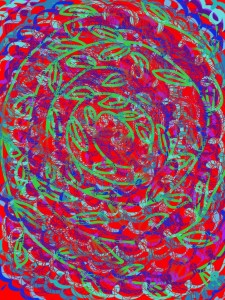
 I announced new online classes as well as the next round of classes and news about my teaching schedule for 2014.
I announced new online classes as well as the next round of classes and news about my teaching schedule for 2014.
For Writers:
I talked about these books:
Time Wasters!
Interesting Social Media Links
This video can be read as an inspiration for writers:
...

What:Translation is an art form, and Coleman Barks’ translation does the poet justice. Rumi was a 13th century Persian mystic poet who may well be the most popular poet in America, given how often lines of his poetry show up on Pinterest.

Who: I cannot think of anyone who would not benefit from this book, particularly if you like poetry.
Why: Read this if you’re interested in simple language presenting wild and wonderful ecstasy. Read it if you’re wondering where you belong in the world or what you should be doing in it. Read it for lines that will linger with you.
When: Read this when you are first falling in or out of love. Read it when your soul is thirsty.
Where and how: Read this in intervals, taking time to savor each piece and turn it over in your head.
#sfwapro
...
I blogged a couple of weeks ago about books I’d recommend for writers focusing on their craft. This time I’m choosing books that are handy to have on a nearby shelf, particularly books that help spark new ideas, whether it’s at the overall story or plot level, or bits that can be used to adorn a story, the tiny embellishments like filagree or the lines in the Book of Kells, because we can always use new idea, little shocks, a kick in the head that turns the world askew in a way that lets us see it more clearly.
...
Want access to a lively community of writers and readers, free writing classes, co-working sessions, special speakers, weekly writing games, random pictures and MORE for as little as $2? Check out Cat’s Patreon campaign.

"(On the writing F&SF workshop) Wanted to crow and say thanks: the first story I wrote after taking your class was my very first sale. Coincidence? nah….thanks so much."

(fantasy, short story) Even Duga the Prestidigitator, who never pays much attention to anything outside his own hands, raised an eyebrow when I announced I’d be hooking the manticore up to my wagon.


This site is protected by reCAPTCHA and the Google Privacy Policy and Terms of Service apply. This site is a participant in the Amazon Services LLC Associates Program, an affiliate advertising program designed to provide a means for sites to earn advertising fees by advertising and linking to Amazon.com.